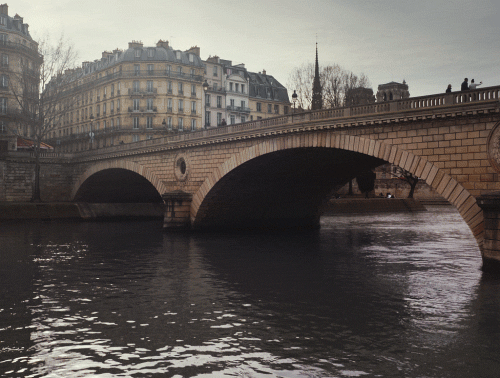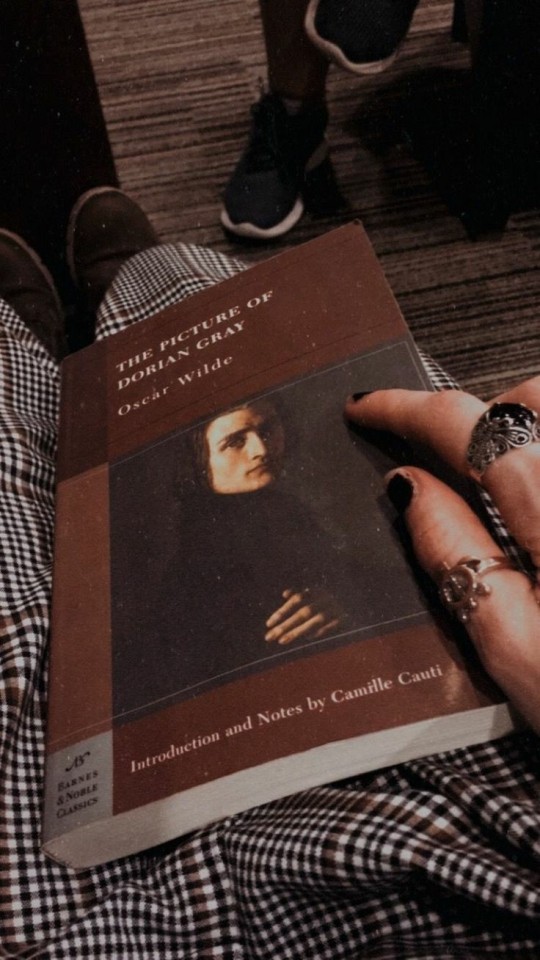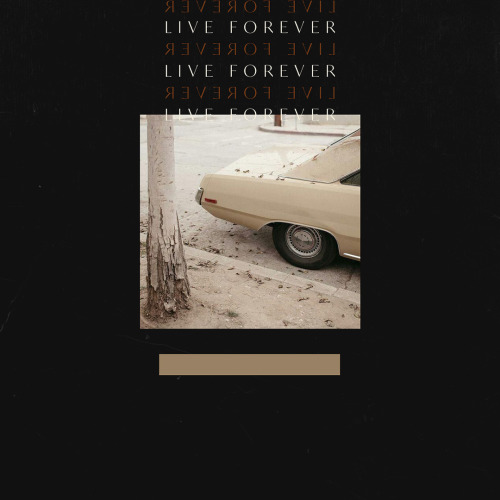Julius Grimm (1842-1906)

Julius Grimm (1842-1906)
In 1888, Julius Grimm used photography and telescope observation to create this intricately detailed and precise oil painting of the moon. In the night sky, the moon is always lit from behind you – so the shadows of the craters can never appear as they do in this painting. Grimm instead regarded the moon as if it were a still life, bathed in golden light emanating from the left side of the painting.
“The picture should only be hung or positioned, that the light falls onto the picture from the side where the arrow is positioned, because otherwise, in the case of incorrect lighting, the effect could be completely lost.”
More Posts from Ad-meliora-tendo and Others
ah, the eternal struggle of maintaining the balance of apollonian and dionysian in oneself

Paris mornings
Bonjour maman! I hope you are doing well. I am an avid reader and lover of poetry and I have wanted to read French poetry for a long, long time. Could you please suggest some poems/collections (B1 - B2) for me?
Hello dear,
It would be hard to make a universal list for this because B1/B2 can look many different ways, the best advice I have is to check out famous authors and see at first glance if their stuff looks too hard for you or not. Here are the basics and an example:
B1/B2 with a good dictionary:
Correspondance by Charles Baudelaire
Dans les bois by Paul Verlaine
La demoiselle by Théophile Gautier
Les malheureux by Louise Ackermann ♀
Crépuscule by Guillaume Apollinaire
Les yeux d'Elsa by Louis Aragon (which I would claim to be the most beautiful love poem in the world)
L'hirondelle by Sophie d'Arbouville ♀
Chanson à boire by Nicolas Boileau
La nuit de printemps by Théodore de Banville
L'ennui de Léonore by Victoire Babois ♀
Les feuilles mortes by Jacques Prévert
Regrets d'amour by Pierre Corneille
Des vivants et des morts - Andrée Chedid ♀
Le désir by Anatole France
À Aurore by George Sand ♀
Par un mauvais temps by Alfred de Musset
Melancholia by Victor Hugo
Le bonheur est mélancolique by Cécile Sauvage ♀
C1/C2 but give it a try anyway:
Première soirée by Arthur Rimbaud
Luth compagnon de ma calamité by Louise Labé ♀
La sagesse by Alphonse de Lamartine
Prière de Socrate by Gérard de Nerval
Le temps de vivre by Anna de Noailles ♀
Le songe by Charles-Augustin Sainte-Beuve
Ce que dit l'homme de peine by Paul Éluard
Élégie du printemps by Pierre de Ronsard
La grande douleur que je porte by Christine de Pisan ♀
Poème à Uranie - Voltaire
La prison by Alfred de Vigny
L'amour et la folie by Jean de la Fontaine
Ô qu'une sagesse profonde by François de Malherbe
L'âme errante by Marceline Desbordes-Valmore ♀
Les fleurs by Stéphane Mallarmé
Le lundi à Vêpres by Jean Racine
C'était novembre by Vénus Khoury-Ghata (1937-) ♀
Holy shit:
Escargots by Francis Ponge (XX, surrealism)
Nous ne sommes fâchés by Joachim Du Bellay (XVI)
Ballade des dames du temps jadis by François Villon (XV)
Lai du Frêne by Marie de France ♀ (XII)
Je brûle avec mon coeur by Théodore Aggripa d'Aubigné (XVI)
Plus:
Entire anthology about female poetry
Hope this helps! x

Tabula Rasa
Noun
[tab-yuh-luh rah-suh, -zuh, rey-]
1. a mind not yet affected by experiences, impressions, etc.
2. anything existing undisturbed in its original pure state.
Origin: In Latin tabula rasa means “erased tablet, a tablet rubbed clean (of writing).” Tabula has many meanings: “flat board, plank, table, notice board, notice, game board, public document, deed, will.” For schoolchildren the schoolmaster’s command Manum dē tabulā “Hand(s) off the tablet!” meant “Pencils down!” Rasa is the past participle of radere “to scrape, scratch, shave, clip.” The inside surfaces of a folded wooden tablet were raised along the edges and filled with wax for writing. The wax could be erased by smoothing with the blunt end of a stylus (more correctly stilus) or by mild heat. The Latin phrase is a translation of Greek pinakìs ágraphos “tablet with nothing written on it, blank tablet,” from Aristotle’s De Anima (Greek Perì Psychês, “On the Soul): “What it [the mind] thinks must be in it just as characters may be said to be on a writing tablet (pinakìs) on which nothing is yet actually written (ágraphos).” Tabula rasa entered English in the 16th century.
“The alarm wakes him, and he opens his eyes to a new day. He feels rested, reset, a tabula rasa.” - Lisa Genova, Inside The O'Briens, 2015
omg i’m crying i can’t believe i found some valid information on what has been disturbing me for such a long time. i felt like i didn’t belong to the language i speak and.. jeez here it is, i’m not alone
All I can think abt is that one quote that basically just describes that you can’t be your true self in your native language bc there’s too much emotional attachment, but that second languages allow speakers to be truly free with their words

Who pisses off the 16 types ヽ(ಠ_ಠ)ノ
Follow me on Instagram, Facebook, Twitter, YouTube and everything else @mbtitime and @typefy






English literature academia aesthetic appreciation post.
spring is not gentle
trembling towards tomorrow
trepidation of love now renewed;
it is a scab scraped over winter
and its bloody, weeping wounds.



And the nights, bigger than imagining: black and gusty and enormous, disordered and wild with stars.
12. why the 1880s?
something about this decade really sings to me. I find in particular, nearing the end of the nineteenth century, so much was happening on around the world in terms of arts, politics, technology, colonization. world events and global news don’t personally reach the day-to-day lives of the everyday folk, but they are an important part in gauging what life, thought, and society was about—what things were important then and now?
basically for myself, reminding me of notable things that occured during the 1880s—some thematic, some of relevance to context and characters, and the rest just ?? interesting and/or wild?
cocaine is a hot new cure for everything and anything. perscribed, sold in foods and more. heroine introduced as a lesser-addictive substitute for morphine…
lots of developments in fields of psychology; many experiments and happenings; Freud starts his work 1886.
1880-1914 had +twenty million immigrants to the United States: Germany, Ireland, England, China had the most arrivals.
William Dorsey Swann, the first self-proclaimed drag queen, organizes a series of drag balls in Washington, D.C. 1880-1890s.
Jack the Ripper claims his “first” victim in 1888 White Chapel, London. big scare.
Sherlock Holmes first appears in Arthur Conan Doyle’s A Study In Scarlet as part of the British magazine’s Beeton’s Christmas Annual in 1887.
Strange Case of Dr. Jekyll and Mr. Hyde by Robert Louis Stevenson is published in 1886. Gothic fiction, drawing from emerging fields of science and psychology. & Treasure Island was published earlier in 1883 by him too!
Mark Twain drops The Prince and the Pauper (1881), Adventures of Huckleberry Finn (1884), A Connecticut Yankee in King Arthur’s Court (1889).
Bel-Ami, Guy de Maupassant’s second novel is published in 1885. about a man who seduces and manipulates high society French women in the French colonies for power and wealth. MOVIE WAS ADAPTED IN 2012 STARTING ROBERT PATTINSON LOL
western European art movements very romantic and swirly and pretty: Monet, Debussy xoxo.
meanwhile, African American ragtime music becomes the “pop” music across the pond here.
North Dakota (1889), South Dakota (1889), Montana (1889), Washington (1889) become states.
train segregation laws flag beginning of Jim Crow; Civil Rights Movement of 1875 voided, making discrimination in private is not illegal, and prohibiting state intervention to personal or commercial segregation. l*nching continues throughout the south. slavery may be over on paper, but indentured labour is legal.
1882 infamous O.K Corral gunfight.
Gold Rush continues, all over the world—South Africa, to British Columbia, to California, to Argentina, to Russia-China borders.
centuries of American “Indian” wars continue.
American Dawes Act of 1887 granted American government authorization to regulate indigenous lands, including creating and assigning and enforcing reservations.
Sitting Bull’s 1883 speech of the atrocities experienced at the hands of white American settler colonists.
Canadian Pacific Railway 1881-1885. foreign labourers were hired to do a lot of heavy, dangerous, unwanted work. in America, more than 100,000km of tracks were laid by majority Chinese, Irish, Scandinavian workers.
America’s Chinese Exclusion Act of 1882 and Canada’s Chinese Immigration Act of 1885 was officiated, enforcing law of a Head Tax to be paid for every Chinese person entering North America. over the course of the next couple of decades, the fee of $1,500 was doubled to $5,000 was increased 500% to $25,000 in today’s currency—per person. this had devastating and lasting impacts on generations and societies of Chinese living both overseas and already in North America. propaganda at this time created many racist myths that persist today: there are too many Asians, they are taking our jobs, (the men) are gross and effeminate and a threat to (white) women, they shady and scheming people. these were the first and only major federal legislation to explicitly suspend immigration for a specific nationality in American and Canadian history. (I study Asian Canadian history, I can go on about this all day)
Tong Wars (1883-1913) had Chinatown gangs and factions in violent street wars across America, San Fransisco to New York.
large, targeted, and repeated anti-Jewish rioting (pogorm) and antisemitism rampant throughout Imperial Russia, 1881-1882 had more than two hundred anti-Jewish events alone. Jews continue to be racialized and othered.
fuck ton of colonization happening in Africa and the Middle East, Southeast Asia. Berlin conference 1884-1885 literally chopped up Africa to distribute to European powers.
Irish nationalist efforts to push forth Home Rule bill of sovereignty is defeated in British Parliament. Irish are not “white”, they are “othered” in Europe and in Americas.
use of photographic film pioneered by George Eastman, who started manufacturing film. his first camera (Kodak) was ready for sale in 1888.
Thomas Edison gets lit in New York 1883 with first electrical power station. next several year sees major cities being lit up with street lamps and public lighting with the science and works of a Nikolas Tesla (1886-1893).
hell of a lot more inventions in the works and patents being claimed. Hertz and radiowaves, Bell for telephone services.
“Between the years of 1850–1900, women were placed in mental institutions for behaving in ways the male society did not agree with”
way too much history to cram, obviously. here are some keywords for further research oki
prison industry / spiritualism / opium epidemic / irregular and uneven “modernizations” in rural vs. urban areas / class and poverty gaps / morality scares, checks, comparisons, gaps / new businesses and gadgets, products, tech to help with anything / fascination of the (colonial) Other; side shows, “freak shows” and other human zoos
-
 cowhidepillowcase liked this · 2 weeks ago
cowhidepillowcase liked this · 2 weeks ago -
 optical-disillusion reblogged this · 2 weeks ago
optical-disillusion reblogged this · 2 weeks ago -
 bigdumbamerican reblogged this · 1 month ago
bigdumbamerican reblogged this · 1 month ago -
 bluecatpurrs reblogged this · 1 month ago
bluecatpurrs reblogged this · 1 month ago -
 psychedehlic reblogged this · 1 month ago
psychedehlic reblogged this · 1 month ago -
 anselivan8 reblogged this · 2 months ago
anselivan8 reblogged this · 2 months ago -
 anselivan8 liked this · 2 months ago
anselivan8 liked this · 2 months ago -
 curatorofthisdigitalmorass liked this · 2 months ago
curatorofthisdigitalmorass liked this · 2 months ago -
 ilmi0labirint0 liked this · 2 months ago
ilmi0labirint0 liked this · 2 months ago -
 vipertool liked this · 2 months ago
vipertool liked this · 2 months ago -
 shannybangbang reblogged this · 2 months ago
shannybangbang reblogged this · 2 months ago -
 marco-gamboa liked this · 2 months ago
marco-gamboa liked this · 2 months ago -
 fiestyvxn liked this · 3 months ago
fiestyvxn liked this · 3 months ago -
 yeonhwa-net liked this · 3 months ago
yeonhwa-net liked this · 3 months ago -
 hayals-9 liked this · 3 months ago
hayals-9 liked this · 3 months ago -
 libraryphantomg5 liked this · 3 months ago
libraryphantomg5 liked this · 3 months ago -
 that-girl-from-the-moon reblogged this · 3 months ago
that-girl-from-the-moon reblogged this · 3 months ago -
 cyranospanache reblogged this · 3 months ago
cyranospanache reblogged this · 3 months ago -
 pulchritudo-in-tenebris reblogged this · 4 months ago
pulchritudo-in-tenebris reblogged this · 4 months ago -
 louvaints liked this · 4 months ago
louvaints liked this · 4 months ago -
 thetransiafantacy reblogged this · 4 months ago
thetransiafantacy reblogged this · 4 months ago -
 livever74 liked this · 4 months ago
livever74 liked this · 4 months ago -
 rilke reblogged this · 4 months ago
rilke reblogged this · 4 months ago -
 rilke liked this · 4 months ago
rilke liked this · 4 months ago -
 chantssecrets liked this · 4 months ago
chantssecrets liked this · 4 months ago -
 iltaisin reblogged this · 4 months ago
iltaisin reblogged this · 4 months ago -
 sonicandvisualsurprises liked this · 4 months ago
sonicandvisualsurprises liked this · 4 months ago -
 sweetarale liked this · 4 months ago
sweetarale liked this · 4 months ago -
 sekretcity liked this · 4 months ago
sekretcity liked this · 4 months ago -
 catheadreynolds liked this · 4 months ago
catheadreynolds liked this · 4 months ago -
 swtfrmx reblogged this · 4 months ago
swtfrmx reblogged this · 4 months ago -
 jiffisquid reblogged this · 4 months ago
jiffisquid reblogged this · 4 months ago -
 jiffisquid liked this · 4 months ago
jiffisquid liked this · 4 months ago -
 likitesplit reblogged this · 4 months ago
likitesplit reblogged this · 4 months ago -
 moonvera reblogged this · 4 months ago
moonvera reblogged this · 4 months ago -
 blackthornflower liked this · 4 months ago
blackthornflower liked this · 4 months ago -
 17fh liked this · 5 months ago
17fh liked this · 5 months ago -
 earlgreyskies reblogged this · 5 months ago
earlgreyskies reblogged this · 5 months ago -
 wssbny liked this · 5 months ago
wssbny liked this · 5 months ago -
 postav54 liked this · 5 months ago
postav54 liked this · 5 months ago -
 sanafir liked this · 5 months ago
sanafir liked this · 5 months ago -
 earlgreyskies liked this · 5 months ago
earlgreyskies liked this · 5 months ago

dark academia | xxi | ♂| INFJ-T | oct.24 — active
192 posts